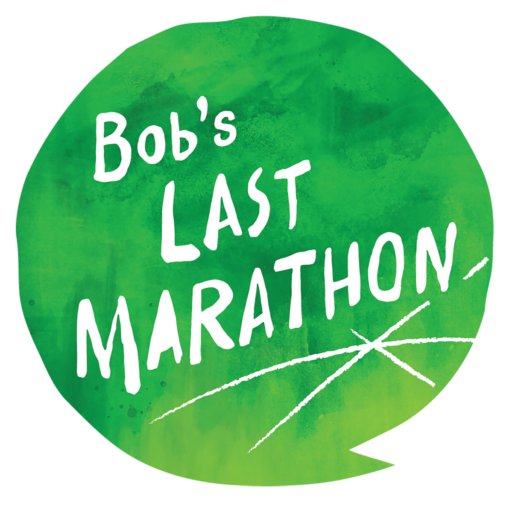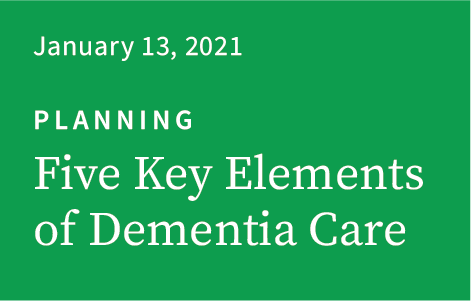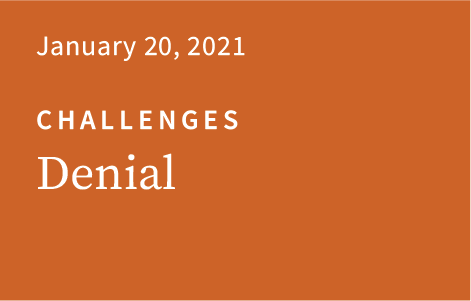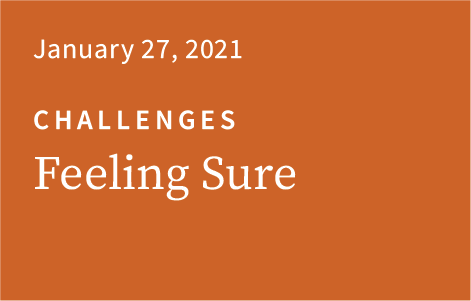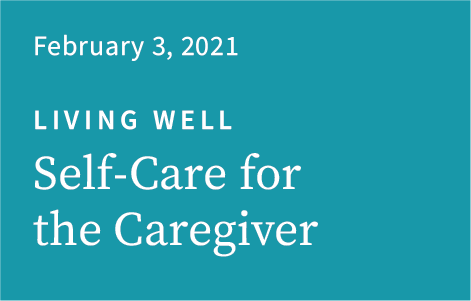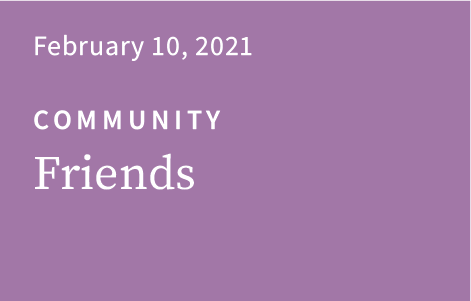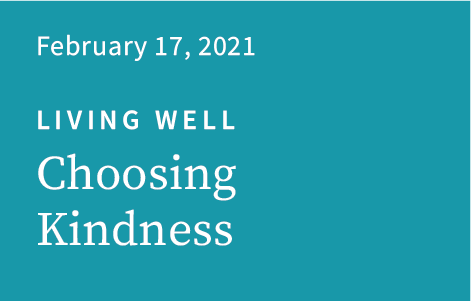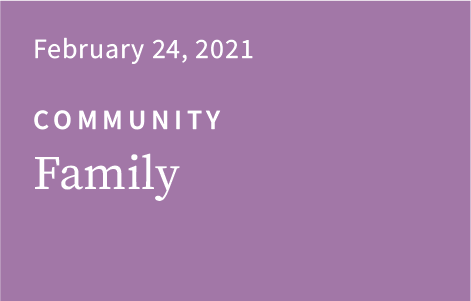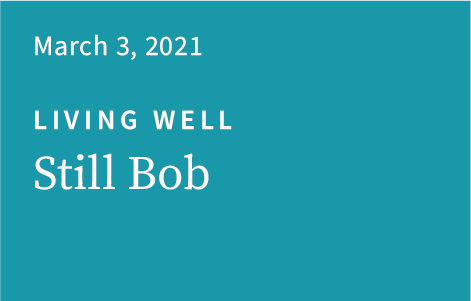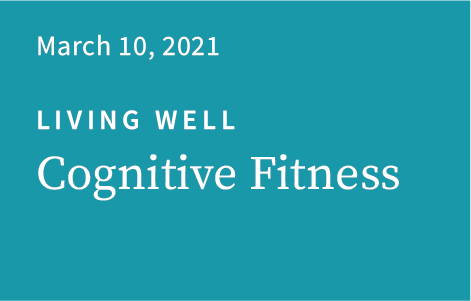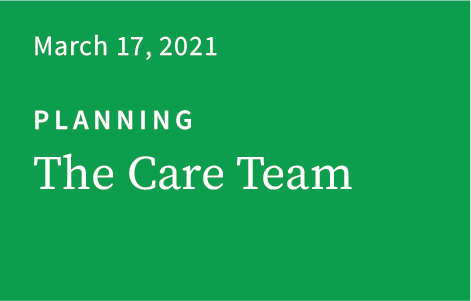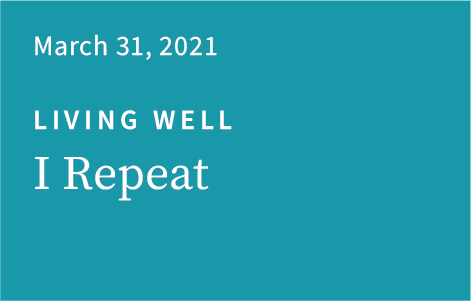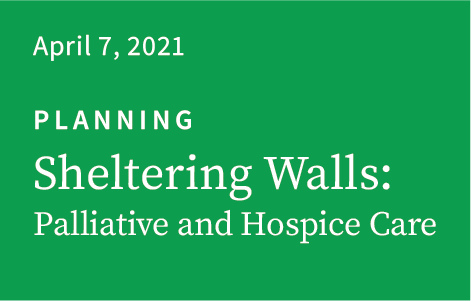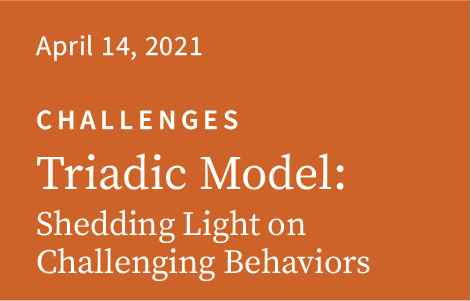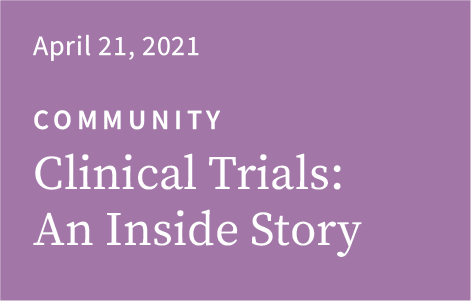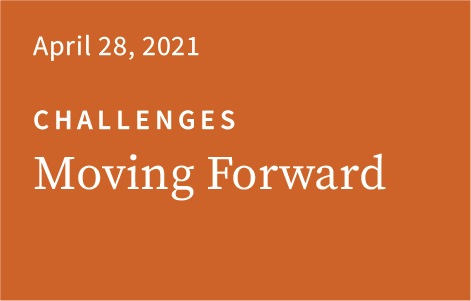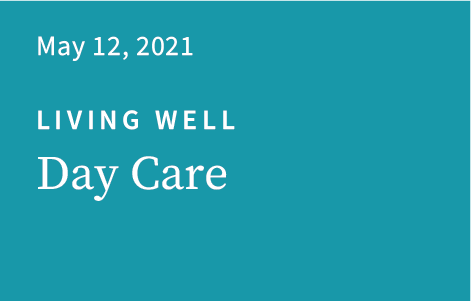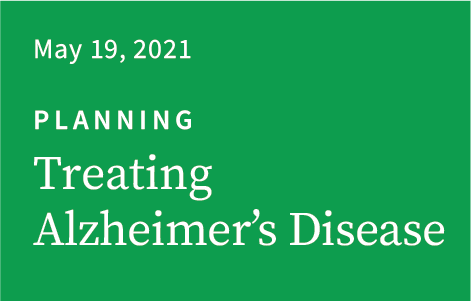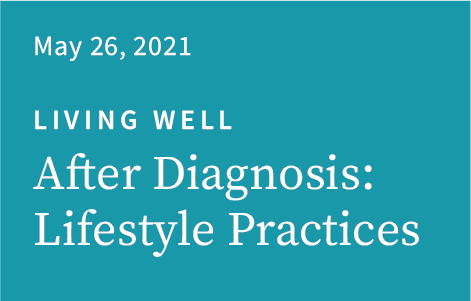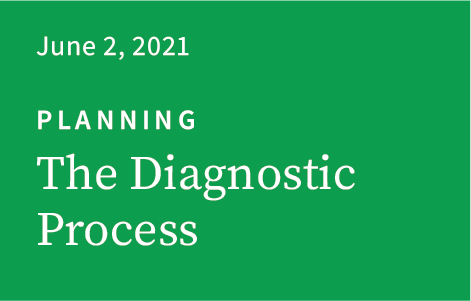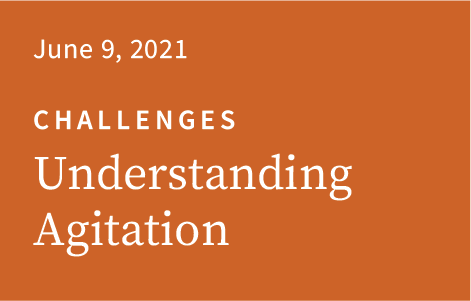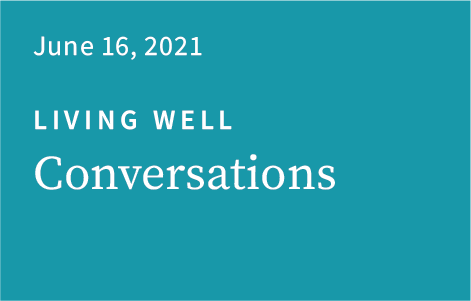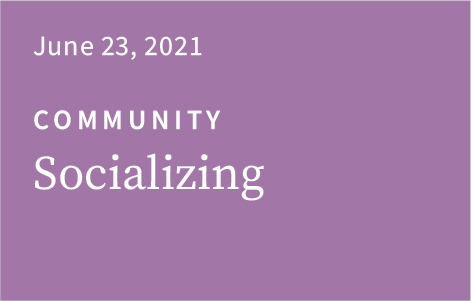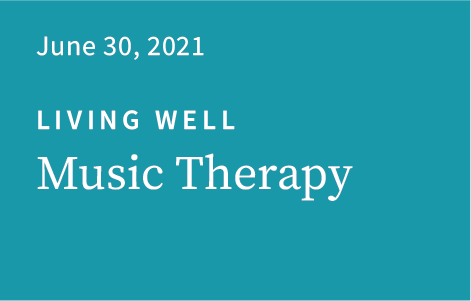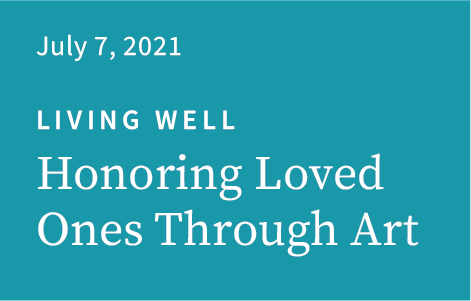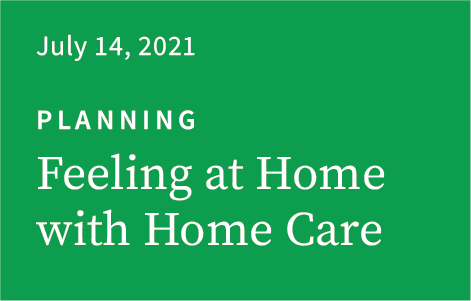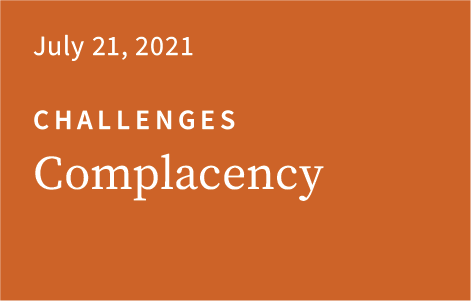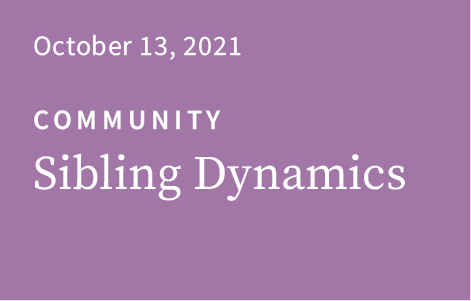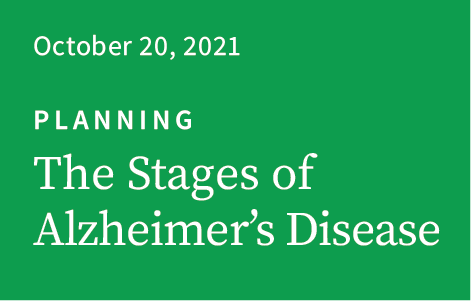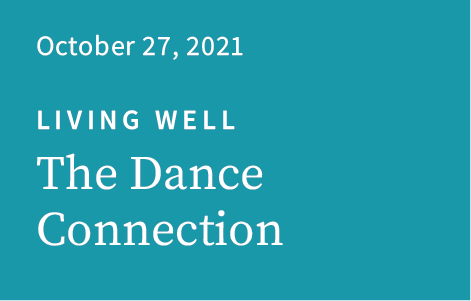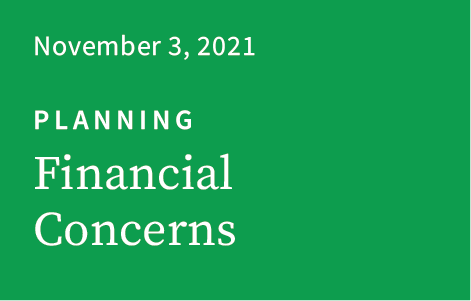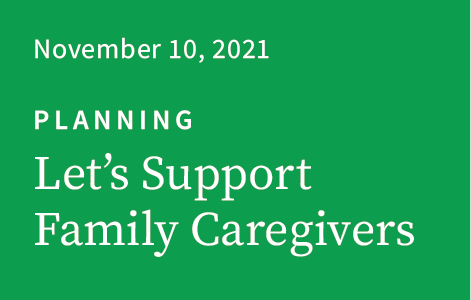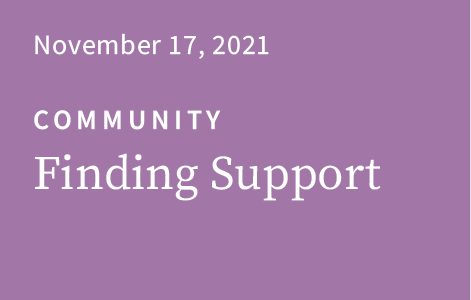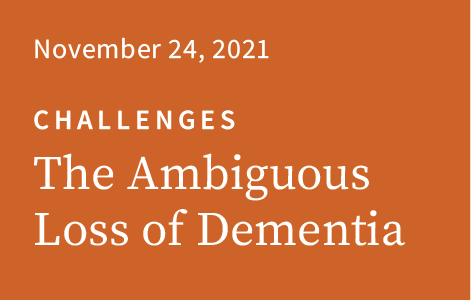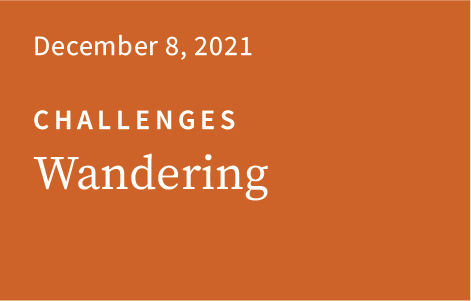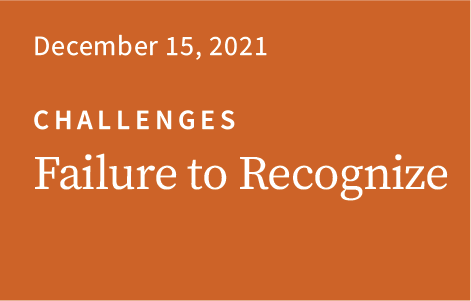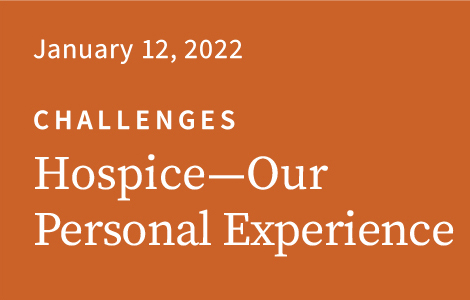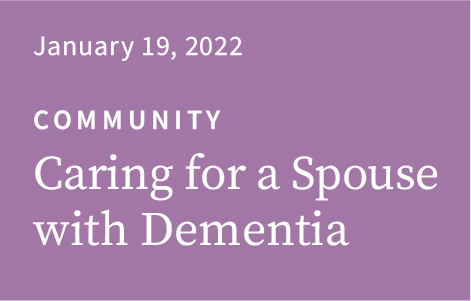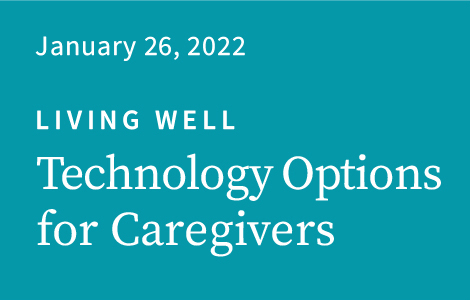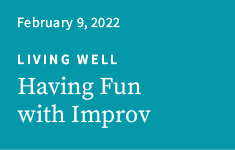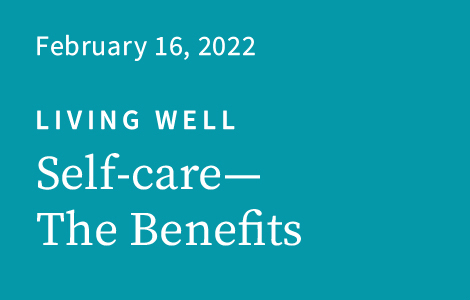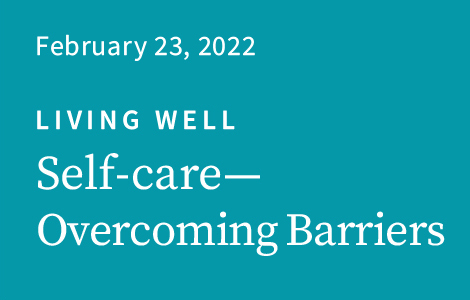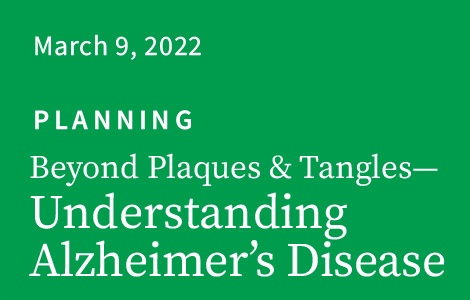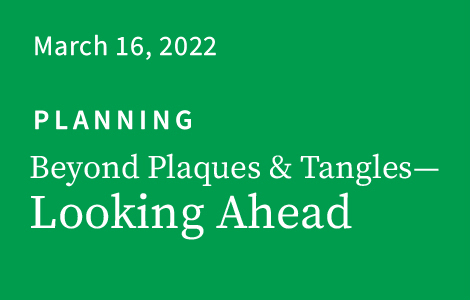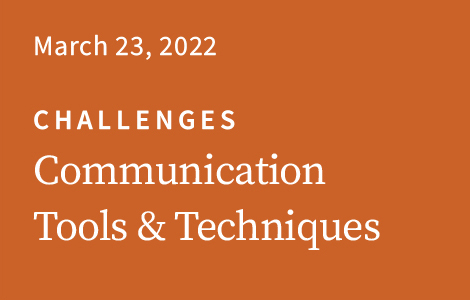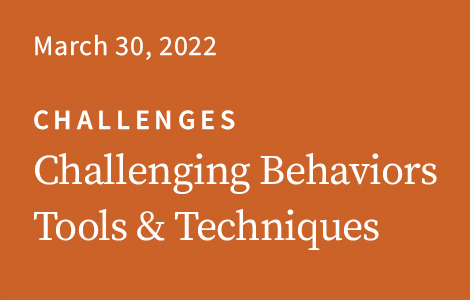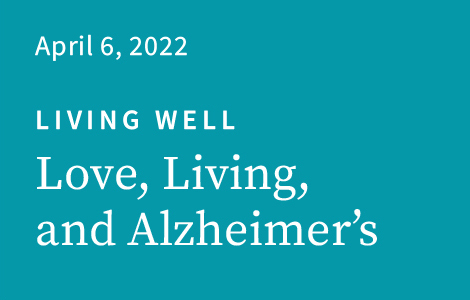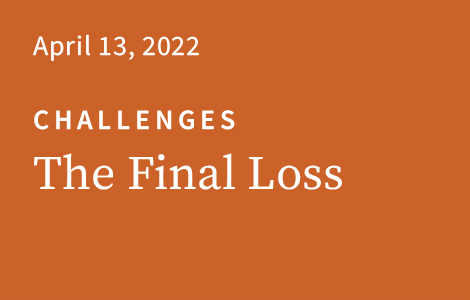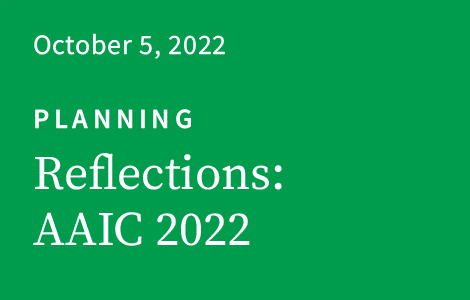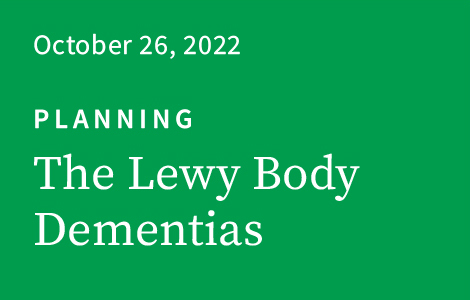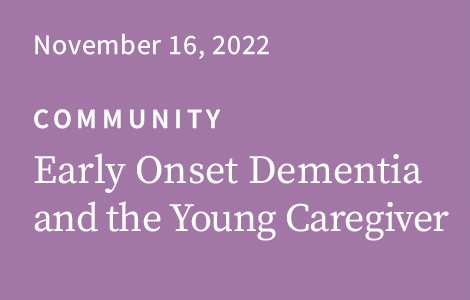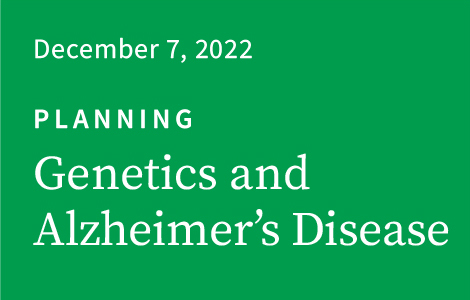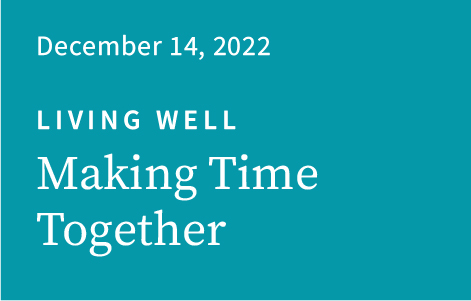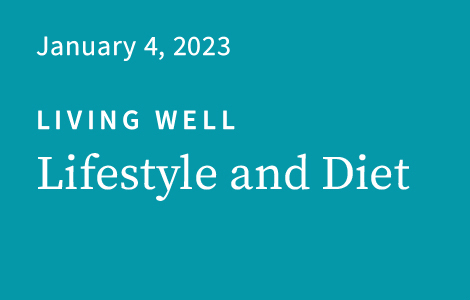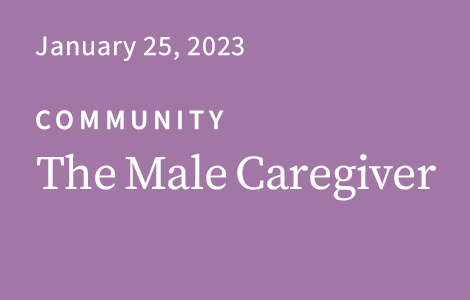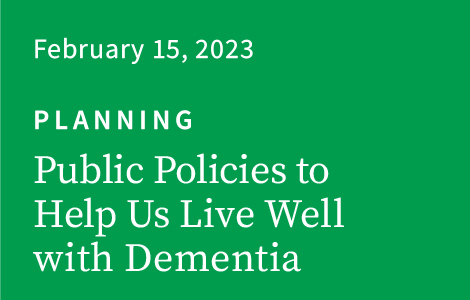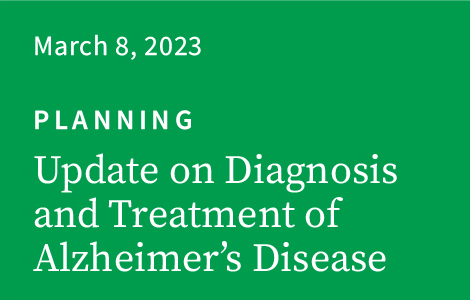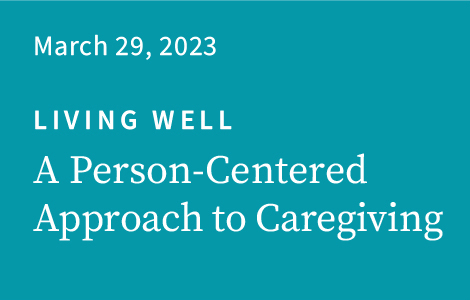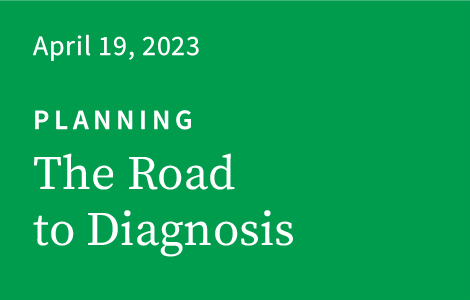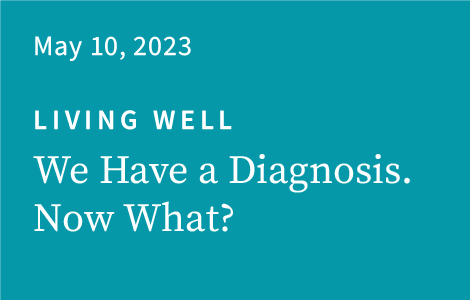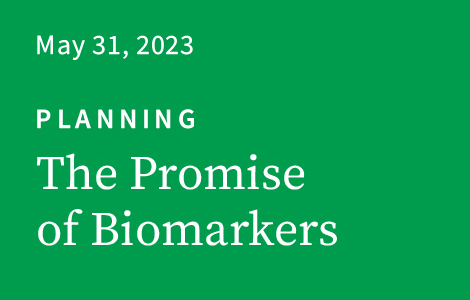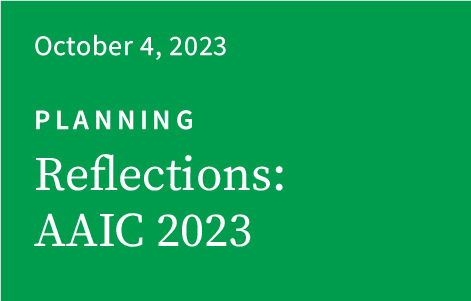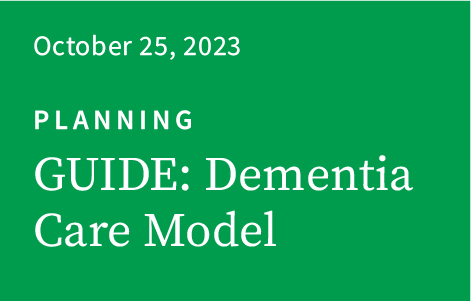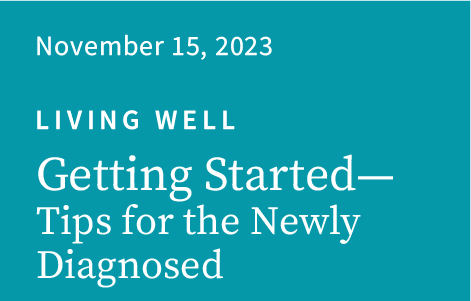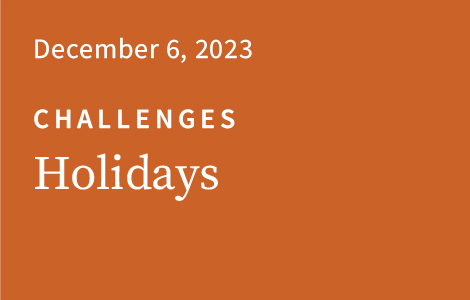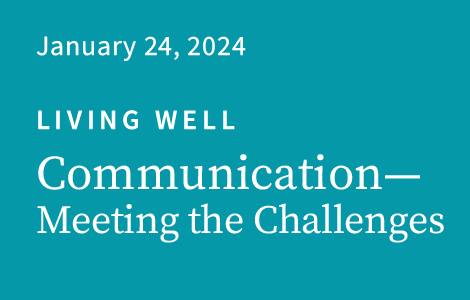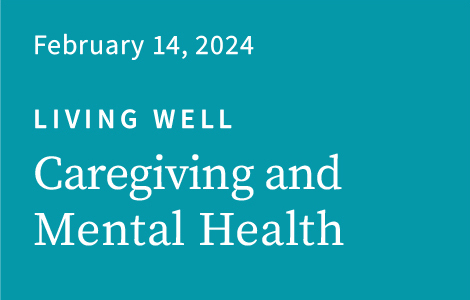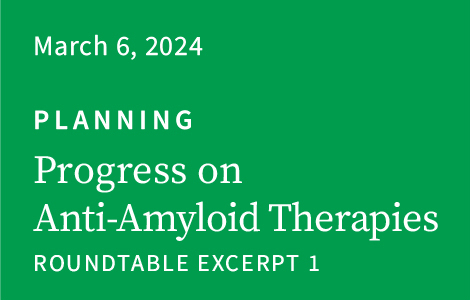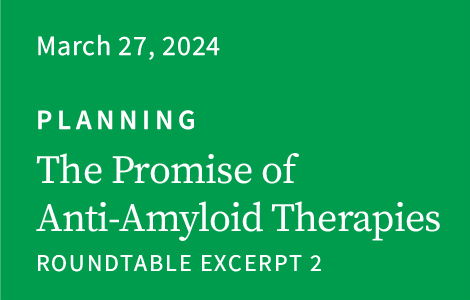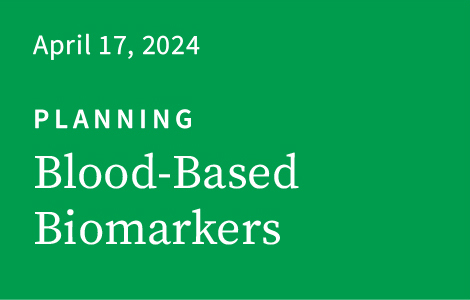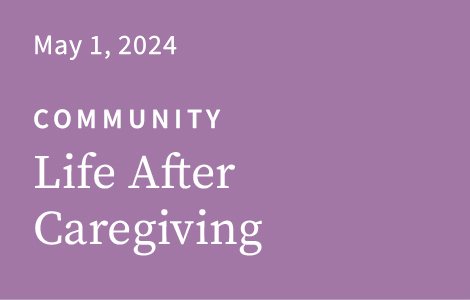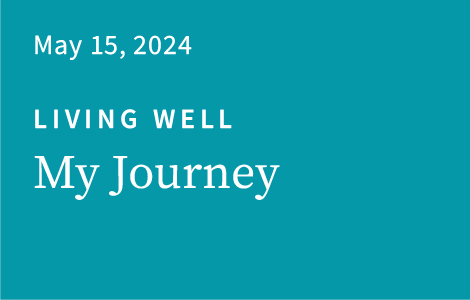Podcasts
Listen here or subscribe on your favorite platform.
SUBSCRIBE
LIVING WELL
My Journey
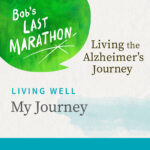
Lena shares her sense of optimism as she recounts how the response to Alzheimer’s disease and related dementias has evolved from little discussion, poor resources, and stigmatizing to general recognition—and dare we say acceptance—of their significance within our aging population. She announces the transfer of all assets—content and branding—to the Penn Memory Center, where work will continue in making our learnings available to all who need them. In doing so, Lena hopes to promulgate our content, share our spirit of service, and, above all, honor the memory of Bob and the many people who have faced the devastation of dementia with courage and dignity.
May 15, 2024 ● 9 Min 52 Sec ● TRANSCRIPT
Browse by category
What’s important to our loved ones’ well-being? How do we integrate these key elements into day-to-day activities? How does day care compare to home care? What about long-term care?
How do we plan daily routines to help our loved ones stay engaged and healthy? What about caring for ourselves? How do we respond to our loved ones compassionately, at all times? What roles can art, music, and cognitive training play in our loved ones’ well-being?
Whom can we turn to when we need help? What are community resources we should know about? What can we expect from our family? Our friends? What roles can support groups play in our caregiving? Should we participate in clinical trials?
Denial can get in the way of moving forward. How do we recognize signs of denial and how do we overcome it? How do we begin to think about the tough decisions ahead of us? What happens when we face difficult and perhaps aggressive behavior?
Browse more episodes
Lena recalls how her life as a caregiver did a 180 when she met Dr. Steven E. Arnold, a leading Alzheimerʼs expert, now at Mass General Hospital—and discovered the five key elements of caring for a person with Alzheimerʼs disease.
January 13, 2021 ● 11 min 47 sec ● TRANSCRIPT
Lena talks about denial—an insidious and potentially dangerous problem that many Alzheimerʼs caregivers face.
January 20, 2021 ● 9 min 51 sec ● TRANSCRIPT
This episode features Katie Brandt, Director of Caregiver Support Services and Public Relations for the Massachusetts General Hospital Frontotemporal Disorders Unit. Katieʼs late husband, Mike, was diagnosed with FTD at the age of 29. Katie tells us about a heartbreaking decision she had to make, and the…
January 27, 2021 ● 11 min 12 sec ● TRANSCRIPT
Lena recalls the moment she realized that taking care of herself was essential to caring well for Bob, and how she learned that giving our very best to our loved ones doesn’t have to mean sacrificing comfort and pleasure.
February 3, 2021 ● 9 min 6 sec ● TRANSCRIPT
Lena talks about some of the common issues that come up from well-meaning friends, and ways to handle them.
February 10, 2021 ● 11 min 23 sec ● TRANSCRIPT
Alexandra Morris, gerontologist and Geriatric Care Manager, talks about how connecting with your loved one’s emotional truths, sometimes over the facts, can be a kind and compassionate way of managing daily life challenges.
February 17, 2021 ● 10 min 3 sec ● TRANSCRIPT
Lena reflects on the role of family in the care of a loved one with dementia, and how their true value goes deeper than the day-to-day chores.
February 24, 2021 ● 10 min 33 sec ● TRANSCRIPT
Lena recalls slivers of light when the Bob she knew and loved surfaced through his dementia, and contemplates the importance of savoring and nurturing our loved one’s essence.
March 3, 2021 ● 11 min 27 sec ● TRANSCRIPT
Dr. Dawn Mechanic-Hamilton, Director of Cognitive Fitness Programs and Neuropsychological Services at the Penn Memory Center, describes the concept of cognitive fitness and some key tools used to support brain health in people with mild cognitive impairment.
March 10, 2021 ● 9 min 33 sec ● TRANSCRIPT
Lena talks about key roles of the caregiver team, people she came to consider family, that she gathered over time to help care for Bob as his disease progressed.
March 17, 2021 ● 12 min 15 sec ● TRANSCRIPT
Lena talks about the importance of daily structure, and outlines the routines she devised to give Bob the care he needed, and give them both a sense of stability in the face of this unpredictable disease.
March 24, 2021 ● 11 min 51 sec ● TRANSCRIPT
Alexandra Morris, gerontologist and Geriatric Care Manager, offers practical and compassionate strategies for coping with a common issue challenging Alzheimer’s caregivers: repetitive behavior.
March 31, 2021 ● 10 min 59 sec ● TRANSCRIPT
Jennifer Fargo Lathrop, Spiritual Care Provider from the outpatient palliative care program of the Palo Alto Medical Foundation, describes palliative and hospice care, and her role as a spiritual care provider for people with dementia.
April 7, 2021 ● 13 min 21 sec ● TRANSCRIPT
Rachel Wiley, Occupational Therapist, explains how dementia-related behaviors can be better understood by considering the person with dementia, the caregiver, and the environment in a given situation, and how this analysis can point to mitigation strategies.
April 14, 2021 ● 12 min 2 sec ● TRANSCRIPT
Judith Johanson, MADRC Longitudinal Cohort Coordinator at Massachusetts General Hospital, describes her experience with her husband Steve, who was diagnosed with early-onset Alzheimer’s, in two types of clinical trials. She talked about how Steve wanted to contribute to research far beyond his time on earth.
April 21, 2021 ● 12 min 5 sec ● TRANSCRIPT
Katie Brandt, Director of Caregiver Support Services and Public Relations for the Massachusetts General Hospital Frontotemporal Disorders Unit, shares the emotional challenges of navigating care for both her father and her husband.
April 28, 2021 ● 13 min 41 sec ● TRANSCRIPT
Lorri Bernstein, MSW, Founder of Senior Living Specialists of Philadelphia and Chicago, tells us about steps to consider in moving our loved ones from home to a care community.
May 5, 2021 ● 10 min 22 sec ● TRANSCRIPT
Lena remembers the moment when it became clear that Bob would benefit from a day care program, and shares the factors that led to their choice.
May 12, 2021 ● 11 min 01 sec ● TRANSCRIPT
Dr. Steven E. Arnold, Professor of Neurology at Harvard Medical School, and Translational Neurology Head and Managing Director of the Interdisciplinary Brain Center at Massachusetts General Hospital, speaks on the current state of treatment for Alzheimer’s disease.
May 19, 2021 ● 11 min 01 sec ● TRANSCRIPT
Dr. Steven E. Arnold, Professor of Neurology at Harvard Medical School, and Translational Neurology Head and Managing Director of the Interdisciplinary Brain Center at Massachusetts General Hospital, speaks about lifestyle practices he recommends for Alzheimer’s patients at the time of diagnosis. These recommendations can also benefit the health and well-being of family members by reducing the risk of developing the disease.
May 26, 2021 ● 12 min 51 sec ● TRANSCRIPT
Dr. Steven E. Arnold, Professor of Neurology at Harvard Medical School, and Translational Neurology Head and Managing Director of the Interdisciplinary Brain Center at Massachusetts General Hospital, talks about his process for diagnosing Alzheimer’s disease.
June 2, 2021 ● 12 min 11 sec ● TRANSCRIPT
Judith Johanson, a member of the Alzheimer’s Disease Research Center at Massachusetts General Hospital, and wife of Steve, who was diagnosed with early-onset Alzheimer’s, shares the heartbreaking experience of coping with behavioral changes symptomatic of disease progression, and how recognizing that these changes were symptoms of his illness helped her navigate through trying times.
June 9, 2021 ● 13 min 43 sec ● TRANSCRIPT
Alexandra Morris, a gerontologist and Geriatric Care Manager with 30 years’ experience helping families to cope with dementia and aging in many settings, offers practical advice for having productive conversations with people who suffer from dementia.
June 16, 2021 ● 12 min 40 sec ● TRANSCRIPT
Lena reflects on the importance of maintaining a social life as Alzheimer’s symptoms progress, and offers practical ways she discovered to navigate the challenges.
June 23, 2021 ● 10 min 06 sec ● TRANSCRIPT
Kristopher Hong, music therapist, talks about how he uses music as a tool to facilitate therapeutic processes. Music can benefit people of all ages with a range of physical and mental capabilities. But it’s especially helpful to those with Alzheimer’s disease, dementia, and other neurological conditions.
June 30, 2021 ● 9 min 06 sec ● TRANSCRIPT
Katie Brandt, Director of Caregiver Support Services and Public Relations for the Massachusetts General Hospital Frontotemporal Disorders Unit, talks about the role of art in the caring of her husband, who was diagnosed with frontotemporal dementia at a young age, and how their young son, Noah, connected with his father through a sculpture he created.
July 7, 2021 ● 11 min 45 sec ● TRANSCRIPT
Stephne Lencioni, licensed Clinical Social Worker and Geriatric Care Manager with over thirty years of experience providing care planning and management to older adults and their families, discusses the why, when, and how of seeking help for family caregivers and explain that it is never too early to start gathering your team.
July 14, 2021 ● 12 min 3 sec ● TRANSCRIPT
Lena shares the importance of closely monitoring outside caregivers—because even the most trusted situation can suddenly change.
July 21, 2021 ● 10 min 46 sec ● TRANSCRIPT
Dr. Barry J. Jacobs, noted clinical psychologist, family therapist, and author, tells us how the challenges of caring for parents with dementia affect sibling dynamics, and how to emerge as an effective team. He explains how caring for a parent can bring out the best—and worst—in adult siblings, and suggests a three-step process for sibling caregivers to work together as an effective support team.
October 13, 2021 ● 10 min 27 sec ● TRANSCRIPT
Felicia Greenfield, Executive Director of the Penn Memory Center, describes the stages of the disease, and how families endure the long journey of dementia caregiving through resilience and newfound sources of purpose and meaning.
October 20, 2021 ● 10 min 21 sec ● TRANSCRIPT
Natasha Goldstein-Levitas, a board-certified Dance/Movement Therapist, talks about how she uses dance/movement therapy to empower and encourage self-expression and ultimately to improve quality of life. She describes how the playful and shared experience of dance can improve mind-body connection, increase circulation, and sharpen focus.
October 27, 2021 ● 9 min 33 sec ● TRANSCRIPT
Nancy Galgoci offers guidance on navigating the financial complexities of the Alzheimer’s journey, based on her professional and personal experience—as a CPA, an accounting professor, a volunteer, and as someone who has helped her family grapple with the challenges of Alzheimer’s disease. She shares insights about applying for the Medicaid waiver program to cover custodial home care services.
November 3, 2021 ● 9 min 41 sec ● TRANSCRIPT
Dr. Venus Wong, a psychologist and a consultant at the Clinical Excellence Research Center at Stanford University, brings us up to date on policies and programs that support family caregivers—and steps that lie ahead. She reviews organizational and policy improvements at national and local levels to better support caregivers.
November 10, 2021 ● 11 min 04 sec ● TRANSCRIPT
Felicia Greenfield, Executive Director of the Penn Memory Center, talks about the many ways caregivers can get the support they need, with an emphasis on support groups. She explains how finding connection and support can make all the difference in the well-being of the person with dementia, and their caregiver.
November 17, 2021 ● 11 min 01 sec ● TRANSCRIPT
Dr. Barry J. Jacobs, noted clinical psychologist, family therapist, and author, talks about the grief Alzheimer’s caregivers often feel for the loss of a person who is still physically present, but no longer the person they once knew. He explains the concept of ambiguous loss, as pioneered by Dr. Pauline Boss, when the person with dementia is ever present to us but also mostly absent, and how to handle this excruciating ambiguity.
November 24, 2021 ● 10 min 59 sec ● TRANSCRIPT
Lena reflects on how a health crisis prompted her and Bob to look ahead and make difficult but important decisions about their future medical care and financial plans. Planning helped Lena and Bob reflect on their priorities and gave them a sense of power to make key decisions, during a time when their lives were overtaken by a disease they couldn’t control.
December 1, 2021 ● 10 min 31 sec ● TRANSCRIPT
Alexandra Morris, gerontologist and Geriatric Care Manager, talks about wandering, a common symptom of Alzheimer’s and other related dementias. Alex highlights some common triggers, and strategies for mitigating risks of wandering and for coping with it.
December 8, 2021 ● 12 min 24 sec ● TRANSCRIPT
Alexandra Morris, gerontologist and Geriatric Care Manager, talks about the inability of people with dementia to recognize family and friends, their own home, or themselves. Alex explains that good dementia care requires adaptability. She reminds us that details and facts are far less important than the positive feeling our loved one has when they are with us.
December 15, 2021 ● 10 min 58 sec ● TRANSCRIPT
In this joint podcast, Judith Johanson, a member of the Alzheimer’s Disease Research Center at Massachusetts General Hospital, and Lena Chow Kuhar, founder of Bob’s Last Marathon Foundation, describe their experience navigating the end stage of life for their husbands, Steve Johanson and Bob Kuhar. They reflect on the decision making process as they transition to hospice—the challenges, self-doubt, and eventually assurance that their choice was one of love and compassion.
January 12, 2022 ● 14 min 27 sec ● TRANSCRIPT
Dr. Barry J. Jacobs, a noted clinical psychologist, family therapist, and health care consultant, reviews some of the essential elements of spousal dementia caregiving: sensitivity to the dignity of the person with dementia; the need for patience, flexibility, and creativity; and the occasional well-intentioned use of white lies or even subterfuge to effectively provide protection. He recommends strategies for surviving this grueling and heart-breaking challenge of spousal caregiving.
January 19, 2022 ● 11 min 47 sec ● TRANSCRIPT
Stefanie Bonigut, LCSW, a care consultant and educator to family caregivers, offers an overview of technology available to caregivers and people living with dementia in many different ways–including communication and coordination across family, friends and professional help; improving safety through home monitoring; organizing medications, reminders for daily use and refills; tracking systems to make walking safer; help with misplaced or lost items; or online activities to enjoy while confined at home.
January 26, 2022 ● 9 min 42 sec ● TRANSCRIPT
Dr. Jean Haskell, actor, educator, and facilitator of the Cognitive Comedy program at the Penn Memory Center. In this episode, Dr. Haskell shares her experience and insights about how improv can help people with memory and cognitive impairment have a little fun, exercise their memory muscle, and benefit from the feeling of community and social engagement. Along with group activities, she will also offer ideas for one-on-one exercises caregivers can use at home with their loved ones.
February 9, 2022 ● 13 min 28 sec ● TRANSCRIPT
In an expert roundtable, Felicia Greenfield, Executive Director of the Penn Memory Center, and Dr. Barry J. Jacobs, a noted clinical psychologist, family therapist, and health care consultant, discussed self-care for the caregiver. Katie Brandt, Director of Caregiver Support Services and Public Relations for the Massachusetts General Hospital Frontotemporal Disorders Unit, was moderator. In this first of two podcasts excerpted from the roundtable, they talk about the importance of self-care, and research demonstrating the value of self-care.
February 16, 2022 ● 11 min 37 sec ● TRANSCRIPT
In an expert roundtable, Felicia Greenfield, Executive Director of the Penn Memory Center, and Dr. Barry J. Jacobs, a noted clinical psychologist, family therapist, and health care consultant, discussed self-care for the caregiver. Katie Brandt, Director of Caregiver Support Services and Public Relations for the Massachusetts General Hospital Frontotemporal Disorders Unit, was moderator. In this first of two podcasts excerpted from the roundtable, they talk about the importance of self-care, and research demonstrating the value of self-care.
February 23, 2022 ● 16 min 7 sec ● TRANSCRIPT
In this first of two excerpts from a recent Expert Roundtable on Alzheimer’s Caregiving, Dr. Steven E. Arnold, Harvard Medical School, and Dr. Stephen M. Strittmatter, Yale School of Medicine, give us an overview of what we know about Alzheimer’s disease and other forms of dementia. They explain how fundamental cell biology processes come into play in neurodegeneration and, in particular, the role of synapse malfunction and degeneration in the final common pathway to memory loss and cognition decline.
March 9, 2022 ● 17 min 59 sec ● TRANSCRIPT
In this second of two excerpts from a recent Expert Roundtable on Alzheimer’s Caregiving, Dr. Steven E. Arnold, Harvard Medical School, and Dr. Stephen M. Strittmatter, Yale School of Medicine, comment on current directions in drug development, notably drug repurposing as a way to accelerate the process, as well as the role of biomarkers in deepening our understanding of the disease, supporting diagnosis, and guiding clinical trials.
March 16, 2022 ● 16 min 35 sec ● TRANSCRIPT
Felicia Greenfield, Executive Director of Penn Memory Center, and Stefanie Bonigut, formerly Family Services Manager with the Alzheimer’s Association, share real-life stories and tips on how to communicate effectively and compassionately with our loved ones as the disease progresses. They also offer ideas on activities that can enrich day-to-day living.
March 23, 2022 ● 15 min 58 sec ● TRANSCRIPT
Felicia Greenfield, Executive Director of Penn Memory Center, and Stefanie Bonigut, formerly Family Services Manager with the Alzheimer’s Association, share real-life stories and tips on how to communicate effectively and compassionately with our loved ones as the disease progresses. They also offer ideas on activities that can enrich day-to-day living.
March 30, 2022 ● 14 min 47 sec ● TRANSCRIPT
Lena reflects on Amy Bloom’s book, In Love, in which Bloom chronicles her husband’s decision to end his life when he was diagnosed with Alzheimer’s disease. Lena recounts the steps that she and Bob took to live the Alzheimer’s journey to the best of their ability, and the gratitude and joy they shared with family and friends.
April 6, 2022 ● 11 min 36 sec ● TRANSCRIPT
Felicia Greenfield, Executive Director of Penn Memory Center, explains that grief is a normal, adaptive response to a loss, and describes frameworks for thinking about the intense physical and psychological responses as we create a path toward healing.
April 13, 2022 ● 12 min 24 sec ● TRANSCRIPT
Highlights from the 2022 Alzheimer’s Association International Conference offer insights into facets of dementia care and moves toward solutions for risk reduction, more accurate diagnosis and treatment. Katie Brandt describes an ongoing study at Mass General Hospital showing how education and support can improve readiness for advance care planning. Also of interest are social determinants of health and their potential impact to increase or reduce the risk of dementia, pointing out loneliness as a public health issue.
October 5, 2022 ● 10 min 53 sec ● TRANSCRIPT
Dr. Stephen Gomperts gives an overview of the Lewy body dementias, the second most common neurodegenerative dementia after Alzheimer’s, affecting some 1.4 million Americans. He explains that there are two clinically distinct but related diseases: dementia with Lewy bodies, also known as DLB, and Parkinson’s dementia. He explains the clinical features, the diagnostic process, and treatment strategies. He advocates a team approach to caring for these complex diseases that affect cognitive, physical, and behavioral functions.
October 26, 2022 ● 12 min 12 sec ● TRANSCRIPT
Katie Brandt narrates her personal journey as a young wife and mother navigating through early onset dementia of her husband Mike, who was diagnosed with frontotemporal dementia at age 29. She shares practical tips on mitigating financial challenges using federal and local programs to create a financial safety net until she was ready to return to work. She spoke of the value of an elder care attorney as she went through the process of planning for the future, and emphasized the importance of joining a support group.
November 16, 2022 ● 12 min 05 sec ● TRANSCRIPT
Dr. Sara Manning Peskin, author of A Molecule Away from Madness: Tales of the Hijacked Brain, reviews what we know about our familial risk of Alzheimer’s disease. She points out that Alzheimer’s disease is usually the result of complex genetic and environmental factors, some of which we still don’t even understand. Environmental factors such as education, diet, and head trauma also contribute to the risk of getting Alzheimer’s disease, so genetics alone don’t account for everything by any means.
December 7, 2022 ● 8 min 27 sec ● TRANSCRIPT
Finding ways to stay socially connected can be challenging at any age—but it may be especially difficult for people living with dementia. Felicia Greenfield describes the Time Together program, pioneered at Penn Memory Center, which matches older adults living with dementia with college students, with the goal of filling the gap when meaningful social engagement is hard to find, and offering respite for the family caregiver.
December 14, 2022 ● 11 min 01 sec ● TRANSCRIPT
Dr. Arnold offers an overview of current understanding of Alzheimer’s disease, and lifestyle changes that can lower risks of disease or slow progression. He suggests that risk factors such as hearing loss, head injuries, cardiovascular risk factors and tobacco use all increase our risk of developing dementia and probably drive progression. He also points out increasing evidence that depression, loneliness, and anxiety can increase our vulnerability to dementia, likely through stress mechanisms. He answers common questions about dietary supplements and natural products.
January 4, 2023 ● 12 min 55 sec ● TRANSCRIPT
The resolved male caregiver, who may sometimes be described as “rigid as a pillar,” is highlighted in this podcast by psychologist Dr. Barry J. Jacobs. Dr. Jacobs explains how male caregivers who keep their feelings buried inside tend to struggle more and eventually burn out, while others who allow themselves to experience their own feelings and understand these internal signals can prevail. He offers advice for adult children on ways they can support their father to make caregiving a shared experience.
January 25, 2023 ● 11 min 02 sec ● TRANSCRIPT
Dr. Jason Karlawish talks about living with dementia and disabling cognitive impairments in the context of today’s public policies that places the burden of care on the American family, and points out gaps in today’s public policies that must be remedied. He explains the concept of custodial care, and how long-term care services and supports are not included in Medicare. He speaks about the need to improve the quality of residential care and cites the success of government-backed programs in other countries. Additionally, Dr. Karlawish points out the importance of supportive decision making, and helping people in the early stages of the disease exercise their autonomy.
February 15, 2023 ● 16 min 22 sec ● TRANSCRIPT
Dr. Steven Arnold explains the underlying causes of dementia, some of which are treatable, and outlines the process for arriving at a diagnosis. He offers an overview of recent developments in anti-amyloid immunotherapies. He puts amyloid and tau—and the presence of plaques and tangles—in perspective as he explains what we know about Alzheimer’s disease today. According to Dr. Arnold, data from amyloid immunotherapies tells us that Alzheimer’s dementia is driven by more than amyloid plaques and tau tangles. He suggests that for people with dementia, our most effective treatment at present is good care, and that lifestyle and diet changes can help optimize brain function for everyone.
March 8, 2023 ● 14 min 22 sec ● TRANSCRIPT
Noting that non-pharmacological approaches to care are considered the gold standard in caring for people living with dementia today, Felicia Greenfield explains the concept of person-centered care, what it is, and how to go about delivering it. Felicia cites the seminal work on dementia by scholar Tom Kitwood, who highlights relationship, uniqueness, and embodiment as the elements of personhood, or sense of self. She highlights the commonalties among models and practices of person-centered care, and shares six recommendations for delivering it. These include: really knowing the person with dementia—the unique and whole person; recognizing and accepting the person’s reality; identifying and supporting ongoing opportunities for meaningful engagement; nurturing and building authentic and caring relationships; maintaining a supportive community; and evaluating care practices regularly, making appropriate changes as needed.
March 29, 2023 ● 12 min 34 sec ● TRANSCRIPT
Lena tells the story of how a series of events, over the course of years, finally brought her and Bob to the doctor’s office for Bob to be tested. She recalls how the diagnosis, painful as it was, opened the door to getting support and receiving the care that Bob needed to live well despite the many challenges they faced together. In her words, “As I watch people around me put off their testing, I wish I knew how to tell them that there is so much more to gain than to lose. Knowledge is power, even when knowing hurts.”
April 19, 2023 ● 8 min 09 sec ● TRANSCRIPT
Felicia Greenfield, LCSW and Executive Director of Penn Memory Center, explains the importance of getting a diagnosis when cognitive impairment is suspected, the process of getting a diagnosis, and the steps that can be taken after diagnosis. She suggests that understanding what lies ahead, securing resources for support, financial planning, and creating a safe environment are just a few examples of actions families can take to help maximize quality of life while living with dementia. Lifestyle changes, safe and effective ways to continue working if still employed, and strategies for engagement and socialization are a few topics she addresses.
May 10, 2023 ● 11 min 55 sec ● TRANSCRIPT
Dr. Steven Arnold offers a comprehensive overview of the expanding role of biomarkers in the diagnosis and monitoring of Alzheimer’s disease and related dementias. Dr. Arnold notes that with new, highly sensitive and specific lab reagents and technologies, we can now detect the extremely low levels of tau, amyloid, and some other brain proteins that are produced in Alzheimer’s disease and leak out into the bloodstream. And in the search for new treatments for Alzheimer’s disease, biomarkers play an important role in expanding our understanding of the disease and enabling us to measure whether a new drug or other treatment is working.
May 31, 2023 ● 10 min 02 sec ● TRANSCRIPT
Felicia Greenfield, Penn Memory Center, shares her learnings from the 2023 annual Alzheimer’s Association International Conference. She presents findings from the Penn Memory Center’s Time Together program, designed to offer opportunities for older adults to interact with college students while giving care partners a break. She summarizes sessions on improving outcomes for caregivers and ways to tailor programs for Black care partners and considering cultural factors in customizing programs. The Care Ecosystem from the University of California San Francisco, presented as a model to address gaps in care and prevent emergency room admissions, is also described. Findings from an evaluation of the effectiveness of the Alzheimer’s Association’s free 24-hour helpline are presented.
Oct 04, 2023 ● 13 min 43 sec ● TRANSCRIPT
Felicia Greenfield, Penn Memory Center, presents an overview of the new nationwide model—Guiding an Improved Dementia Experience (or GUIDE)—announced by CMS recently. The goals of GUIDE include: (a) improving quality of life for people living with dementia by addressing their behavioral health and functional needs, coordinating their care for dementia and co-occurring conditions, and improving transitions between community, hospital, and post-acute settings; (b) reducing burden on unpaid caregivers by providing caregiver skills training, referrals to social services, 24/7 access to a support line, and respite services; and (c) preventing or delaying long-term nursing home care by enabling people living with dementia to remain safely in their homes for as long as possible.
Oct 25, 2023 ● 12 min 00 sec ● TRANSCRIPT
Hearing news about a diagnosis, can be a devastating, confusing, and difficult experience. To help our listeners find the way to helpful information, and look for guidance on getting started, we’ve curated content that our audience has found to be the most useful—in understanding the basics about dementia care, learning about lifestyle practices we can adopt to slow the disease, putting together a daily routine that works and helps both the caregiver and the person who has been diagnosed, and thinking about what a care team might look like. Dr. Steven E. Arnold will review recommendations for lifestyle practices, while Lena discusses practical issues for day-to-day living and, importantly, how she learned in the end that despite the challenges, it was a worthwhile journey.
Nov 15, 2023 ● 33 min 27 sec ● TRANSCRIPT
Holidays are meant to be a time of joy, celebration, and tradition, but they can also be stressful and hectic. Caring for a person living with dementia can bring additional holiday stress to a caregiver. How your loved one participates in your holiday rituals will need to be adjusted. Stefanie Bonigut, MSW, shares tips and strategies that can help a caregiver make the holidays as manageable and as joyful as possible.
Dec 6, 2023 ● 9 min 38 sec ● TRANSCRIPT
Alex Morris talks about the need to acknowledge changes within the person with dementia, and the modifications that can help loved ones remain comfortable and engaged. She also stresses the importance of reducing the burden on the caregiver by sharing some of the planning and hosting of events. Tips for improving conversation are also offered.
Jan 3, 2024 ● 10 min 26 sec ● TRANSCRIPT
Dementia can pose challenges by changing the way a person communicates. Repetition, confusion, and inappropriate language are just a few examples of what caregivers may face. Today, we would like to share some curated content from past episodes that our audience has found to be the most useful—in developing techniques, and perhaps a fresh perspective, to connect with our loved ones in the face of dementia. Alexandra Morris, gerontologist and dementia care manager, will share tips about handling communication changes.
Jan 24, 2024 ● 45 min 04 sec ● TRANSCRIPT
Caregiver stress and burnout are not uncommon, as caregiving for someone with dementia is a journey that demands resilience, compassion, and understanding. Felicia Greenfield, MSW, LCSW, describes a case study and urges our listeners to navigate caregiving while prioritizing mental health and well-being. She recommends a combination of self-care practices—such as meditation, exercise, spending time with family—and a willingness to ask for help in caring as well as in maintaining one’s own mental health. In her words, “It’s never too late to start caring for yourself.”
Feb 14, 2024 ● 11 min 24 sec ● TRANSCRIPT
Decades of research have helped elucidate the roles of amyloid plaques and tau tangles in Alzheimer’s disease, identify biomarkers of underlying pathology, and guide the development of new therapies. In this first of two excerpts from a recent roundtable, Dr. Steven E. Arnold, Massachusetts General Hospital, and Dr. David A. Wolk, Penn Memory Center, review our current understanding of amyloid and tau pathologies and the clinical trial data that led to the recent approval of Leqembi (lecanemab), the first fully FDA-approved drug for Alzheimer’s disease in over 20 years.
Mar 6, 2024 ● 19 min 23 sec ● TRANSCRIPT
The somewhat complex logistics for both the clinic and the patient in administering Leqembi (lecanemab), the first fully FDA-approved drug for Alzheimer’s disease in over 20 years, are summarized in this second of two excerpts from a recent roundtable. Dr. Steven E. Arnold and Dr. David A. Wolk highlight some of the risk factors, including genetic risk factors. They postulate that Alzheimer’s disease may be more than amyloid and perhaps more than amyloid and tau, and ponder a future of combination therapy and precision medicine, where therapies are targeted toward individual patients.
Mar 27, 2024 ● 35 min 59 sec ● TRANSCRIPT
With the availability of anti-amyloid therapies, accurate diagnosis and staging of Alzheimer’s disease becomes ever more important, as does the need to monitor response to treatment. Faster, less expensive, and more accessible blood-based biomarkers, a long-standing goal for the medical research community, are now on the horizon. Dr. Steven E. Arnold, Massachusetts General Hospital, explains why accuracy and reliability of results are key criteria for their widespread use, and the importance of the health care provider in interpreting test results and giving them context. Looking into the future, Dr. Arnold suggests that the greatest promise of blood-based biomarkers may be in the prevention of Alzheimer’s disease, through early detection before symptoms appear. He also outlines ongoing efforts to identify and understand markers of other disease mechanisms such as inflammation, oxidative stress, vascular injury, and nutrient levels.
Apr 17, 2024 ● 09 min 51 sec ● TRANSCRIPT
With the availability of anti-amyloid therapies, accurate diagnosis and staging of Alzheimer’s disease becomes ever more important, as does the need to monitor response to treatment. Faster, less expensive, and more accessible blood-based biomarkers, a long-standing goal for the medical research community, are now on the horizon. Dr. Steven E. Arnold, Massachusetts General Hospital, explains why accuracy and reliability of results are key criteria for their widespread use, and the importance of the health care provider in interpreting test results and giving them context. Looking into the future, Dr. Arnold suggests that the greatest promise of blood-based biomarkers may be in the prevention of Alzheimer’s disease, through early detection before symptoms appear. He also outlines ongoing efforts to identify and understand markers of other disease mechanisms such as inflammation, oxidative stress, vascular injury, and nutrient levels.
May 1, 2024 ● 11 min 55 sec ● TRANSCRIPT
Lena shares her sense of optimism as she recounts how the response to Alzheimer’s disease and related dementias has evolved from little discussion, poor resources, and stigmatizing to general recognition—and dare we say acceptance—of their significance within our aging population. She announces the transfer of all assets—content and branding—to the Penn Memory Center, where work will continue in making our learnings available to all who need them. In doing so, Lena hopes to promulgate our content, share our spirit of service, and, above all, honor the memory of Bob and the many people who have faced the devastation of dementia with courage and dignity.
